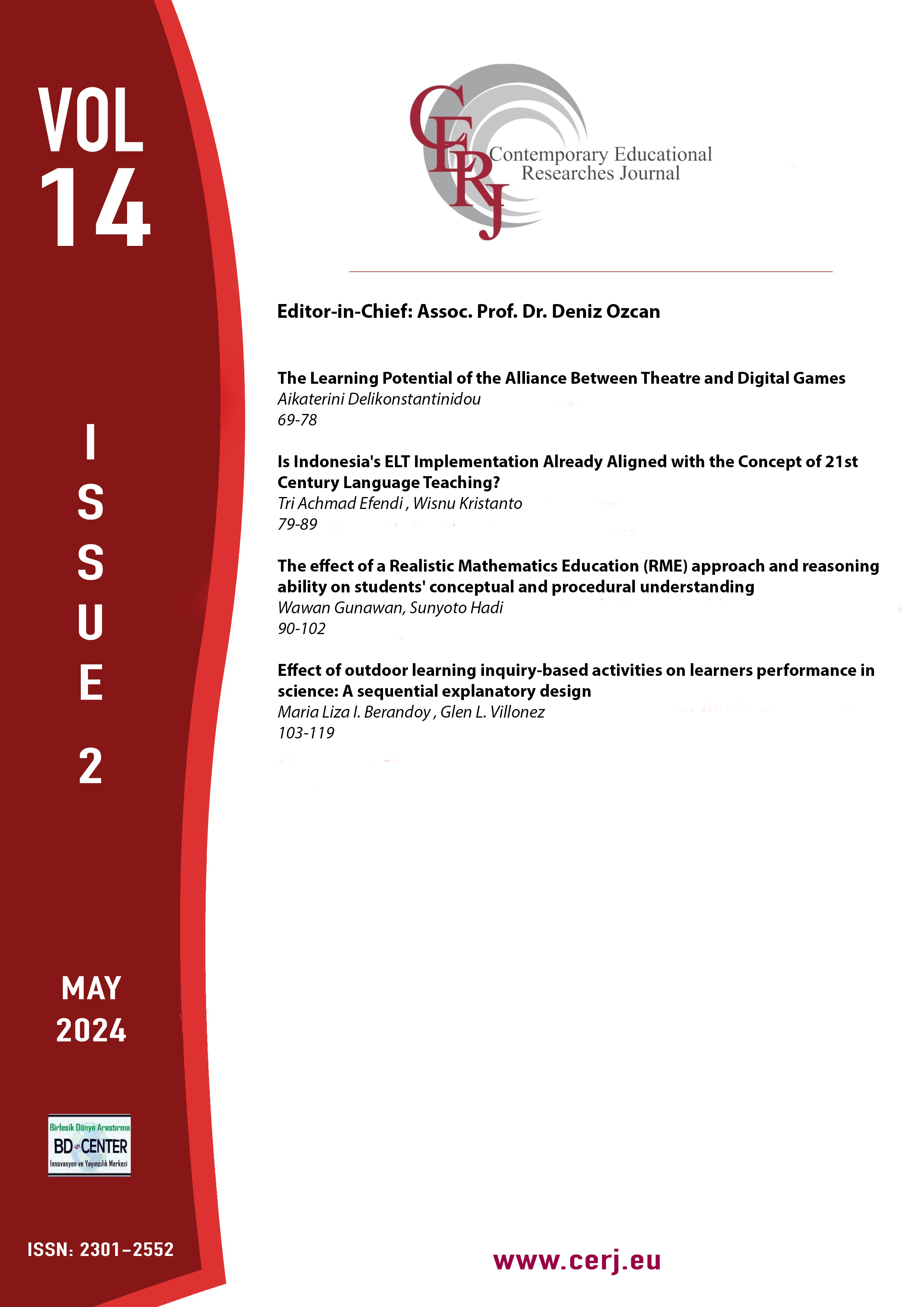The effect of a Realistic Mathematics Education (RME) approach and reasoning ability on students' conceptual and procedural understanding
Main Article Content
Abstract
This research aimed to test the conceptual understanding and procedural understanding of mathematics in groups of students who have high reasoning abilities and low reasoning abilities by following the RME approach and lecture method. This research used a 2X2 factorial quasi-experimental design with the independent variables being the RME approach and the lecture method. Data collection was carried out using tests of reasoning ability, conceptual understanding, and procedural understanding instruments. The pretest and posttest data were analyzed using the MANCOVA test. Based on the results of the research there is a significant difference in the conceptual understanding and procedural understanding of mathematics in groups of students who have high reasoning abilities and low reasoning abilities by following the RME approach and lecture method. Based on the results of this research, it was concluded that using the RME approach and high reasoning abilities can improve the conceptual understanding and procedural understanding of mathematics for class VII students. This research implies that the RME approach can be used as a way to improve students' conceptual understanding and procedural understanding of mathematics.
Keywords: Conceptual understanding; mathematics; procedural understanding; reasoning ability; RME approach.
Downloads
Article Details

This work is licensed under a Creative Commons Attribution-NonCommercial-NoDerivatives 4.0 International License.
Authors who publish with this journal agree to the following terms:
- Authors retain copyright and grant the journal right of first publication with the work simultaneously licensed under a Creative Commons Attribution License that allows others to share the work with an acknowledgement of the work's authorship and initial publication in this journal.
- Authors are able to enter into separate, additional contractual arrangements for the non-exclusive distribution of the journal's published version of the work (e.g., post it to an institutional repository or publish it in a book), with an acknowledgement of its initial publication in this journal.
- Authors are permitted and encouraged to post their work online (e.g., in institutional repositories or on their website) prior to and during the submission process, as it can lead to productive exchanges, as well as earlier and greater citation of published work (See The Effect of Open Access).
